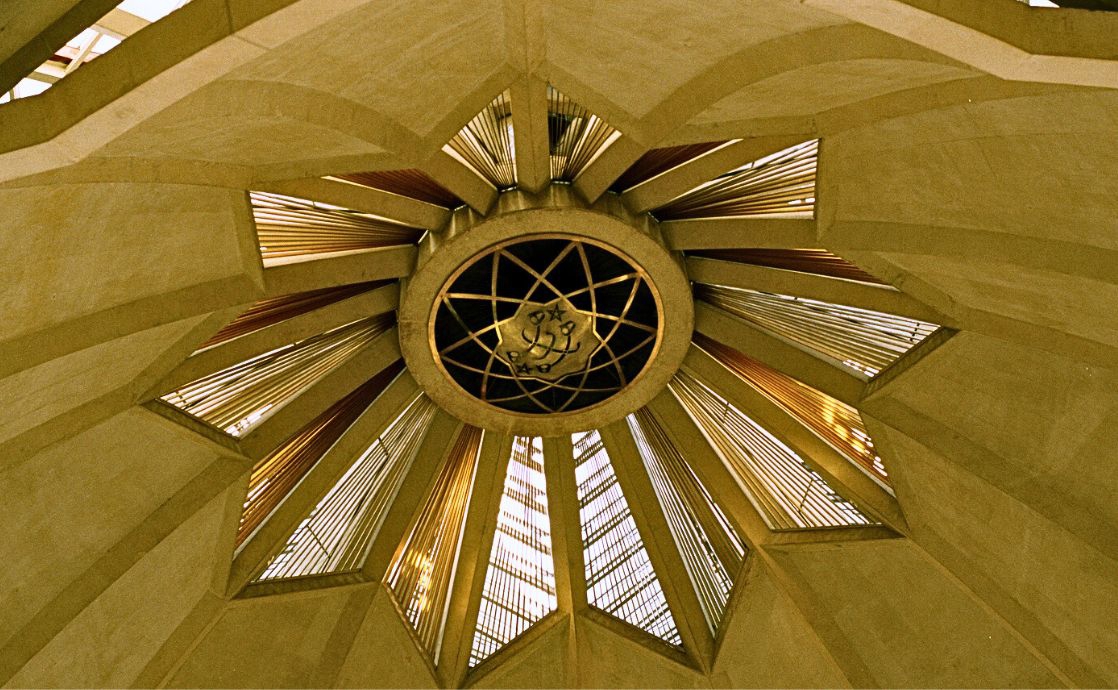The views expressed in our content reflect individual perspectives and do not represent the authoritative views of the Baha'i Faith.
What principles in the Baha’i Faith are brand new, or relatively so? Abdu’l-Baha’s talk on December 2, 1912, revealed some of the unique, new, and unprecedented teachings brought by Baha’u’llah:
This evening I wish to speak to you concerning the special teachings of [Baha’u’llah]. All the teachings which have been given during the past days and ages are to be found in the Revelation of [Baha’u’llah]; but in addition to those, this Revelation has certain new teachings which are not found in any of the religious books of the past. I shall now refer to some of the new teachings given by [Baha’u’llah]; as for the rest of them[,] you may obtain them from the Tablets and Epistles written by [Baha’u’llah], for the new teachings given by [Baha’u’llah] are many.
While in the Hidden Words we read concerning that which has descended upon the Prophets of the past,* yet there are in the Hidden Words teachings which are new and particular to this Revelation. Then the Tablet of the Glad-Tidings revealed by [Baha’u’llah] contains special teachings. The Tablet by [Baha’u’llah] called, The Words of Paradise, contains special teachings ... Again the Tablet of Tajalliat [Tajalliyyat] contains special teachings … Similarly, all other Tablets of [Baha’u’llah] contain new teachings which have not been revealed in any Books and Epistles of the past Prophets. Likewise, in the Book of [Aqdas — Baha’u’llah’s Most Holy Book] there are new teachings which are not to be found in any of the past Books or Epistles. When you peruse those teachings you shall comprehend this fact.
When reading this passage as a whole, it seems perfectly clear that Abdu’l-Baha regards Baha’u’llah’s Hidden Words as containing new teachings. From what I understand of Abdu’l-Baha’s perspective, virtually all of Baha’u’llah’s teachings are new to varying degrees, from the standpoint that they are, at the very least, renewed teachings that are adapted and applied to the requirements of this day and age.
Beyond these renewed and expanded teachings, there are other teachings that are intrinsically and distinctively new that simply cannot be found in the sacred texts of previous world religions. Abdu’l-Baha wrote that Baha’u’llah brought “new principles” which are “the light of this time and the very spirit of this age”:
Out of this pitch blackness there dawned the morning splendor of the Teachings of Baha’u’llah. He hath dressed the world with a garment new and fair, and that new garment is the principles which have come down from God. …
And all this newness hath its source in the fresh outpourings of wondrous grace and favor from the Lord of the Kingdom, which have renewed the world. The people, therefore, must be set completely free from their old patterns of thought, that all their attention may be focused upon these new principles, for these are the light of this time and the very spirit of this age.
These new teachings, Abdu’l-Baha wrote, “hath never before been witnessed”:
A further proof lieth in the very teachings of Baha’u’llah, which banish every trace of dissension and discord from the world of humanity, and establish everlasting unity and harmony. Refer to the Tablets of Tajalliyyat (Effulgences), Ishraqat (Splendours), Kalimat (Words of Paradise), Bisharat (Glad-Tidings) and Ṭarazat (Ornaments), and thou wilt clearly see what teachings have been vouchsafed by this new Kingdom—teachings that bestow upon the feeble body of the world a swift remedy and a practicable, lasting cure. The like of such teachings hath never before been witnessed.
Although justice and fairness are perennial teachings in all religions, they become new within the Baha’i revelation because Baha’u’llah has elevated them to the status of “best beloved,” along with associated new teachings regarding “justice and fairness”:
O Son of Spirit! The best beloved of all things in My sight is Justice; turn not away therefrom if thou desirest Me, and neglect it not that I may confide in thee. By its aid thou shalt see with thine own eyes and not through the eyes of others, and shalt know of thine own knowledge and not through the knowledge of thy neighbor. Ponder this in thy heart; how it behooveth thee to be. Verily justice is My gift to thee and the sign of My loving-kindness. Set it then before thine eyes.
Baha’u’llah’s new teachings have three levels of “newness,” from my study of them over the years:
1. Renewed perennial teachings.
2. Renewed teachings that are given a new priority and importance, as well as a new perspective, by way of comments that are relatively unprecedented.
3. New teachings that are not to be found in past Scriptures, as pointed out by Abdu’l-Baha.
Here, degrees of “newness” are relative, not absolute. This is a purely personal perspective, of course — but one that I offer respectfully to all for serious consideration.
On November 7, 1912, at the home of Agnes Parsons, Abdu’l-Baha expressed this last point more fully:
In the nineteenth century strife and hostility prevailed among the people of the Orient. Apathy and ignorance characterized the nations. They were indeed gloomy and dark, negligent of God and under the subjection of the baser instincts and passions of mankind. The struggle for existence was intense and universal. At such a time as this Baha’u’llah appeared among them like a luminary in the heavens. He flooded the East with light. He proclaimed new principles and teachings. He laid a basis for new institutions which are the very spirit of modernism, the light of the world, the development of the body politic and eternal honor.
Baha’is believe that the influence of Baha’u’llah’s new principles and teachings, when projected into the future, will change the course of human history. This powerful prophecy of the “Most Great Peace” — a Baha’i term for the future golden age of world civilization, the foundation of which Baha’is worldwide are establishing today — from the Guardian of the Baha’i Faith, Shoghi Effendi, outlines how the Baha’i revelation will ultimately usher in a new era of peace, justice, and unity for all humanity:
Few will fail to recognize that the Spirit breathed by Baha’u’llah upon the world, and which is manifesting itself with varying degrees of intensity through the efforts consciously displayed by His avowed supporters and indirectly through certain humanitarian organizations, can never permeate and exercise an abiding influence upon mankind unless and until it incarnates itself in a visible Order, which would bear His name, wholly identify itself with His principles, and function in conformity with His laws. … According to these divinely-ordained administrative principles, the Dispensation of Baha’u’llah—the Ark of human salvation—must needs be modeled. …
For Baha’u‘llah, we should readily recognize, has not only imbued mankind with a new and regenerating Spirit. He has not merely enunciated certain universal principles, or propounded a particular philosophy, however potent, sound and universal these may be. In addition to these He, as well as Abdu’l‑Baha after Him, has, unlike the Dispensations of the past, clearly and specifically laid down a set of Laws, established definite institutions, and provided for the essentials of a Divine Economy. These are destined to be a pattern for future society, a supreme instrument for the establishment of the Most Great Peace, and the one agency for the unification of the world, and the proclamation of the reign of righteousness and justice upon the earth.
So where are Baha’u’llah’s other new principles and teachings to be found? As Abdu’l-Baha has stated above, “as for the rest of them[,] you may obtain them from the Tablets and Epistles written by Baha’u’llah, for the new teachings given by [Baha’u’llah] are many.”
These can be found in such works as Abdu’l-Baha has mentioned, including, for instance, Baha’u’llah’s The Hidden Words, the Tablet of the Glad-Tidings, the Words of Paradise, the Tablet of Effulgences, The Most Holy Book, and “all other Tablets of Baha’u’llah” which “contain new teachings which have not been revealed in any Books and Epistles of the past Prophets.”
No one yet, to the best of my knowledge, has carefully studied these texts for the specific purpose of enumerating, one by one, Baha’u’llah’s many other new principles and teachings in any comprehensive fashion. That would be a worthy project, indeed.
















Comments
Sign in or create an account
Continue with Googleor